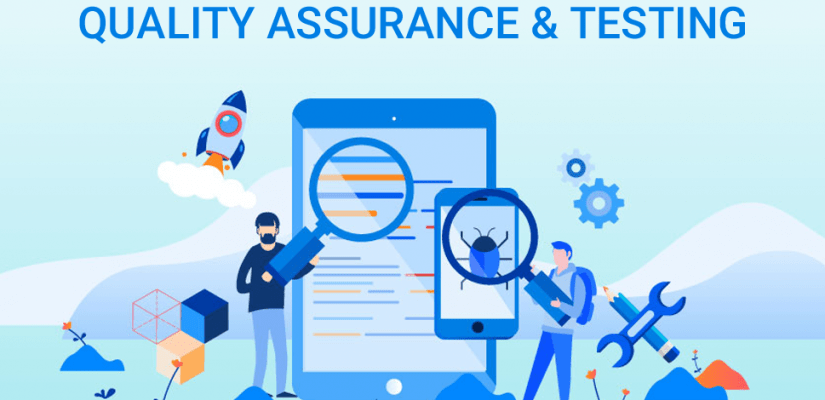As a software tester in a SaaS company, you are probably always looking for new tools to add to your testing arsenal. And luckily, there are many different API testing tools available. This blog post will explore seven of the most popular API testing tools. We will discuss what each tool is best for and how it can improve your software testing process. So, without further ado, let’s get started!
Postman
Postman is one of the most popular API testing tools available today. This Chrome extension makes it easy to build, test and document your APIs. It also allows you to share them with team members or even the public if needed. Some of Postman’s main features include:
- Collection runner – allows you to run all the collections in your directory.
- Time travelling – allows you to record your API activity and then go back to any point during that session. You can even share these recorded test sessions with team members or the public, which is perfect for QA teams spread out worldwide.
- Collections of collections – once you have a lot of collections, it can be hard to keep track of which one needs to be run and when. Postman takes care of this by allowing you to create collections of collections.
SoapUI Pro
SoapUI Pro is a great API testing tool for those looking to test both SOAP and REST APIs. One nice thing about SoapUI Pro is that it can generate load tests and put them into an HTML report, making it easy for you to create your reports. Some of its main features include:
- REST API functional testing – SoapUI Pro allows users to test the most important aspects of REST APIs, including URL paths, parameters and HTTP response codes.
- API simulation testing – SoapUI Pro can generate tests by combining multiple requests and assertions, which is great for running automated tests.
- RESTful web services functional testing automation – with the RESTful APIs constantly taking over as the norm for application integration, it’s important that your teams can efficiently test them. With SoapUI Pro, you can create automated test scripts and run them in a Big Data-ready Docker container.
Fiddler
Fiddler is one of the most popular HTTP debugging tools used today. It’s great for software testing web service APIs exposed through HTTP and HTTPS protocols. Some of its main features include:
- Log incoming and outgoing traffic – Fiddler allows you to record and watch all HTTP traffic between your computer and the Internet.
- Analyze network packets – Fiddler makes it easy for you to see headers, cookies, POST payloads and other useful information about every request and response. These features make it possible for teams to debug their APIs, test server responses or validate their integration points.
WireMock
WireMock is a lightweight tool designed to make stubbing easier. It allows you to quickly generate fake responses that can be used in place of inaccessible endpoints during the early stages of your testing process. Some of its main features include:
- An easy-to-use user interface -allows you to run requests right from your browser.
- Create dynamic mocks – make it possible for WireMock to generate responses by using C# expressions dynamically.
HTTP Master
HTTP Master is a powerful API testing tool that makes it easy for QA teams working on large-scale applications to test APIs created with the .NET framework. Some of its main features include:
- Intelligent request builder – allows you to quickly and accurately create complex requests that can be used for testing APIs, HTTP servers or web services.
- Performance analysis – HTTP Master will generate performance reports that let users see how long each test took to run and which tests need to be optimized for better results.
Runscope
Runscope is another popular tool used by QA teams when testing APIs. It allows you to quickly test RESTful APIs in the cloud, making it perfect for teams that need to run tests with minimal setup or maintenance. Some of its main features include:
- Open source REST API proxy – works directly with applications deployed in the cloud, making it ideal for QA teams with limited resources.
- All-inclusive API testing and monitoring – Runscope provides users with the ability to monitor the performance of their APIs, generate test scripts, validate webhooks and capture detailed analytics reports. Once you start using Runscope, you’ll wonder how you ever did without it.
API Fortress
API Fortress is another API testing tool that makes it easy for teams to test APIs created with the .NET framework. It has a similar approach to Runscope, which means you can easily capture data from web services and then use this data to generate test cases through an intuitive user interface automatically. Some of its main features include:
- Test web APIs – build tests capable of simulating all types of API requests, which means you can use them to perform unit testing.
- Easy-to-use interface – the user interface is designed to let you add actions and then link them together into a logical test flow. This helps even non-technical team members to create and run tests against their APIs quickly.
Final Thoughts
These seven tools can help you to improve the quality of your API testing process. They make it possible for QA teams to easily create test scripts, automate their tests and generate detailed analytics reports. Furthermore, they each offer a unique feature set designed to make testing APIs a little easier.

















